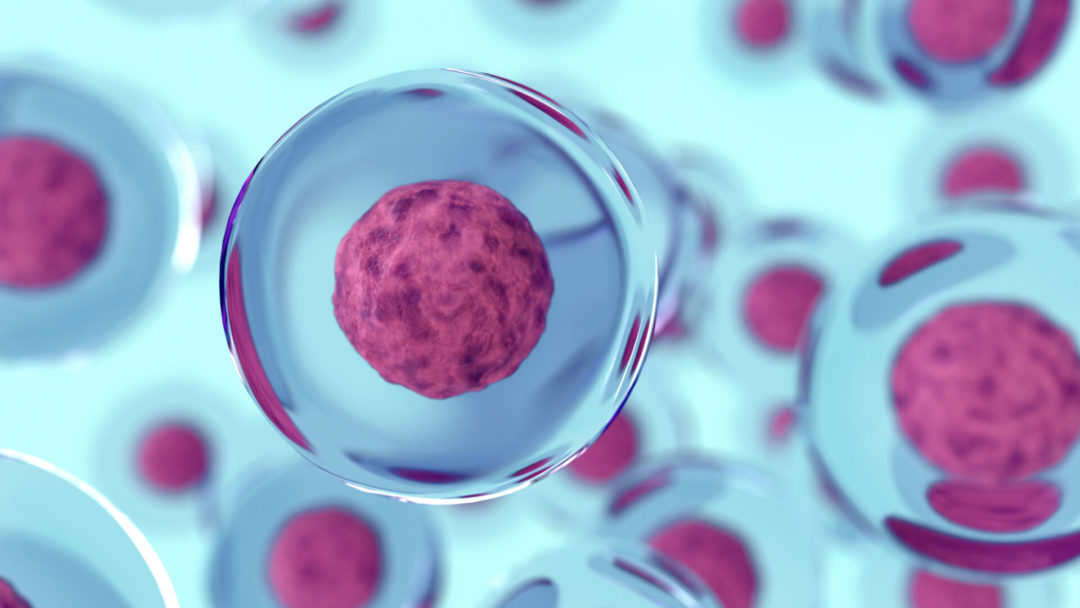“Cellular function is important to our overall health,” Rick Jentis, Global Category Head, Healthy Aging and Cellular Nutrition, Nestlé Health Science (NHS), toldWholeFoods. “They’re building blocks, with specialized jobs. A healthy cell is one in which all the components are working, enabling us to perform how we want to. An unhealthy cell, on the other hand—as people get older, mitochondria are constantly getting turned over in a process called mitophagy, mitochondrial recycling. Mitophagy is the cell’s ability to get rid of old, less-functional mitochondria and bring in new, healthy mitochondria—it’s a normal, healthy process. But mitophagy slows as we age, so you’re not getting the best performance out of your cells.”
Mitochondria are typically described as the powerhouse of the cell, as one of their major functions is to generate adenosine triphosphate (ATP), or energy. Slower, less-productive mitochondria leads to less energy. And that can have an effect—possibly an unexpected one, for active people. “When we think about muscle strength,” Jentis explained, “it’s important to have muscle mass—but how well are those muscles functioning? How well are the mitochondria working? How are you feeling? Are you showing signs of slowing down, compared to your baseline, that you notice? If you’re a runner, and you know you can run a certain distance in a certain time, and you’re no longer able to meet it? That could be a sign that you’re having some cellular breakdown.”
Celltrient,an NHS brand, offers a Cellular Strength product, containing Mitopure Urolithin A. Urolithin A (UA) is produced by gut microflora from foods rich in ellagitannins, which has been shown to improve mitochondrial health in humans, but not everyone has a microbiome capable of producing it, according to a June 2021 study published inEuropean Journal of Clinical Nutrition.The goal of the study was therefore to find out if supplementation could make a difference in UA status. 100 participants were given either a glass of pomegranate juice—from which gut microbiota should theoretically be able to make UA—or 500mg of a food product containing UA. The researchers found that only 12% of subjects had detectable levels of UA at baseline, and that following pomegranate juice intake, only 40% of the subjects were able to convert the precursor compounds into UA—those subjects had a significantly higher gut microbiome diversity and ratio of Firmicutes to Bacteroides. On the other hand, direct supplementation with UA significantly increased plasma levels, even beyond what the UA producers were able to make after consuming pomegranate juice.
A second study published in January 2022 inJAMA Network Opengave 66 adults aged 65 – 90 years either 1,000mg UA or a placebo daily for four months. The study found that UA significantly improved muscle endurance and decreased biomarkers of poor cellular health, while being safe and well-tolerated. The two studies together showed the efficacy and safety of the supplement, while displaying the need for supplementation.
Jentis also pointed to nicotinamide riboside (NR) as a molecule of interest in cellular energy and health. NR can increase levels of NAD+, a vital molecule on the path to ATP production. “There’s a body of evidence for the importance of NAD+, a major precursor for ATP,” Jentis said, “and NR increases NAD+. We focus on the importance of NAD importance in energy metabolism, but every week there’s a new article about NAD supporting health.”
Even with healthy mitochondria, though, there’s still reason to keep an eye on cellular health, and consider supporting it. “When your mitochondria are working efficiently, they have byproducts, including reactive oxygen species (ROS), which put oxidative stress on your cells,” Jentis said. “Some of that is necessary—it signals certain bodily processes—but when it gets out of control, suddenly you’re going to have oxidative damage, damage to the cells.” Jentis’ solution was GlyNAC—a combination of glycine and N-Acetyl Cysteine, two precursors to glutathione. “Glutathione is the most important intracellular antioxidant. It works to maintain low levels of oxidative stress in the cells, but it can decline as we age.”
Related: 10 Top Healthy Aging Priorities NAC—The Latest Health-Success Story to Become an FDA Target Bioenergy Ingredient May Support Stress Response, Healthy Aging
In March 2021, Baylor College of Medicine had a paper published inClinical and Translational Medicine.The pilot clinical trial looked at eight older adults, who were given GlyNAC supplementation for 24 weeks and then went 12 weeks without supplementation. They found that GlyNAC corrected red blood cell glutathione deficiency, oxidative stress, and mitochondrial dysfunction, and improved inflammation, endothelial dysfunction, insulin resistance, genomic damage, cognition, strength, gait-speed, and exercise capacity, but that benefits declined after halting supplementation for 12 weeks. While the study was small, the researchers concluded: “Supplementing GlyNAC in aging humans could be a simple and viable method to promote health and warrants additional investigation.”When should people start worrying about this? Age is a major factor in cellular health, but Jentis notes that depending on how an individual lives their life and where they live their life, they may want to act early. “There are internal sources of cellular decline starting at 30, but there are also environmental risk factors—sun exposure, excessive stress, pollution, insulin resistance, smoking, sedentary lifestyles, poor sleep habits, obesity, all can contribute to cellular damage. Cellular nutrients can have a benefit, even for younger consumers. And if you’re an athlete, some of these nutrients might help support physical activity—it hasn’t been fully studied yet, but from the science we’ve got, there’s reason to believe it.”
Jentis’ top takeaway? “If you’re sedentary, start moving. If you move, move more. That’s one of the best things you can do for your cellular health. Physical activity drives body processes that lead to cellular renewal.”
Keep an eye out for more on cellular health: Jentis shared that there are studies in the process of publication, including one study conducted by Nestlé that found that GlyNAC supplementation was used to make glutathione in times of stress—but that in times of low oxidative stress, those precursors were used elsewhere, such as in collagen synthesis.









